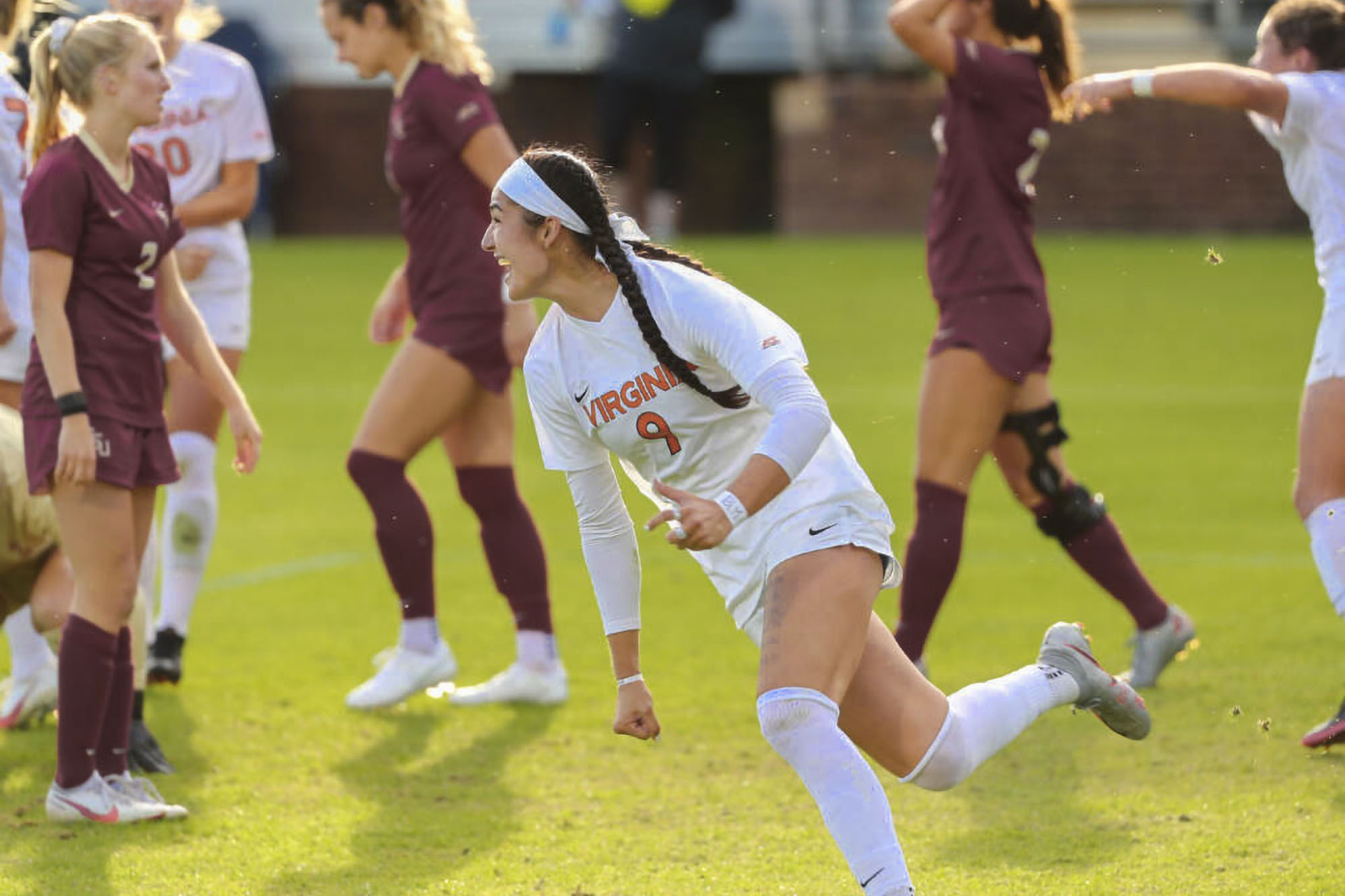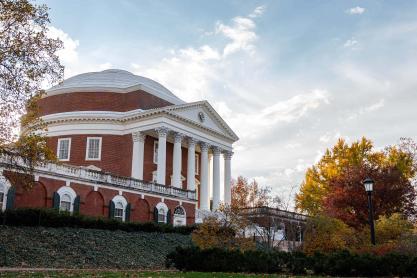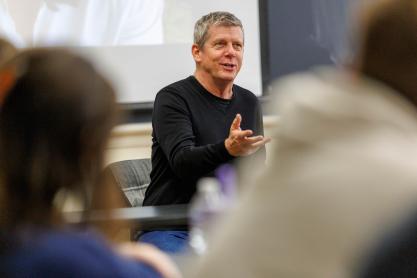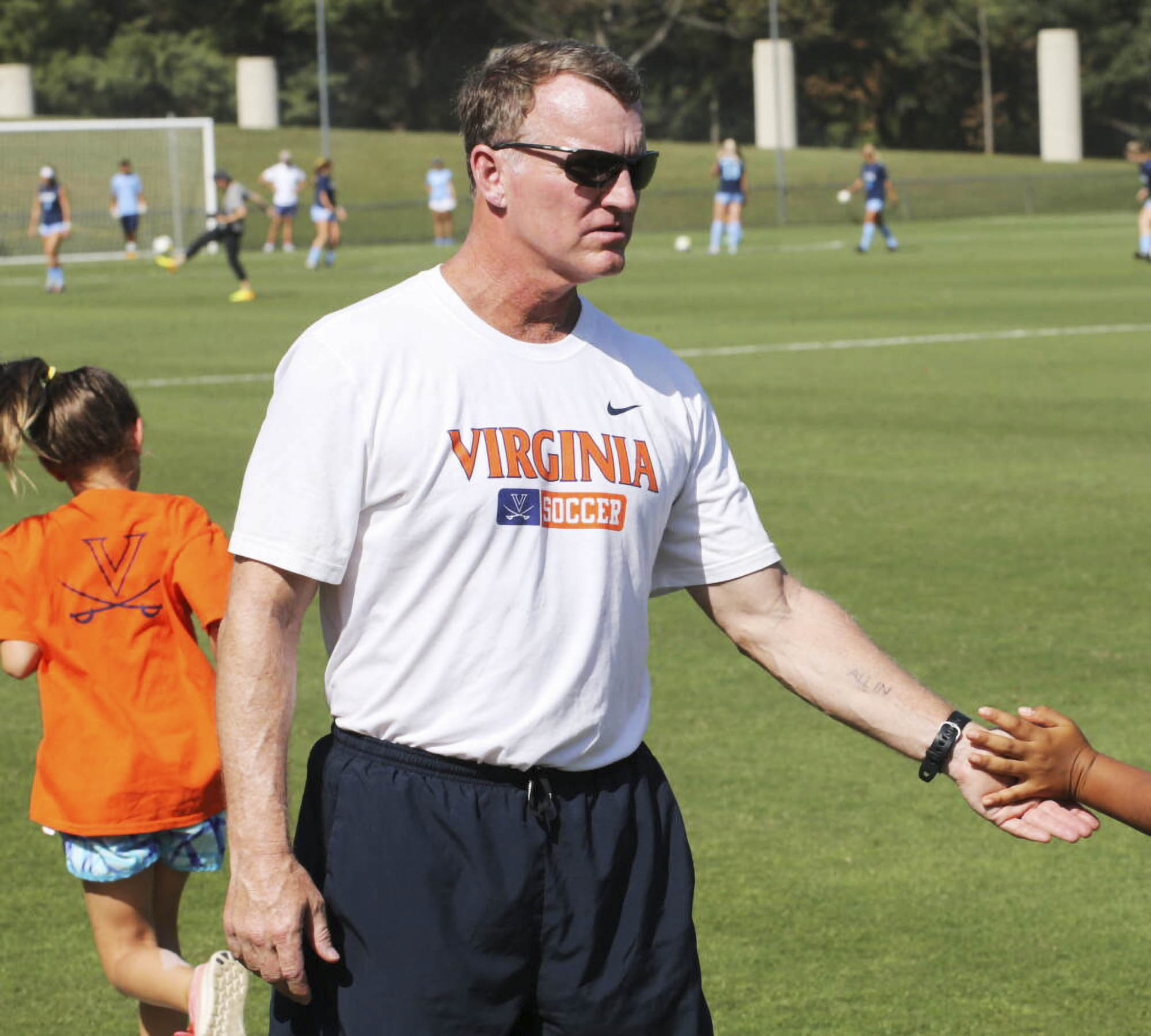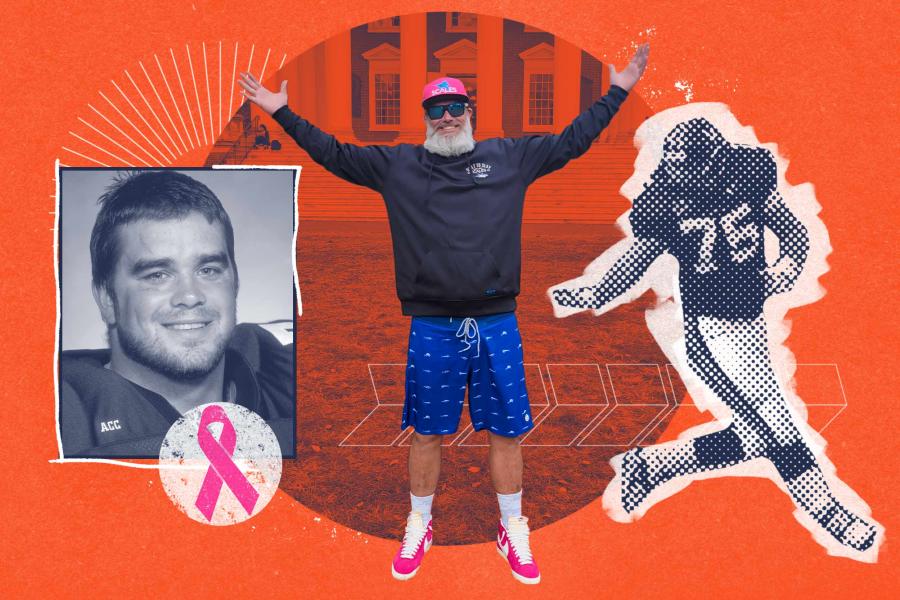After making back-to-back appearances in the College Cup in 2013 and 2014, the University of Virginia women’s soccer program remained among the nation’s elite, turning out NCAA tournament teams year after year. Not until this spring, however, did the Cavaliers make it back to their sport’s Final Four.
That underscores the difficulty of pulling off that feat, said Steve Swanson, whose record in 21 seasons as UVA’s head coach is 329-98-50, with 21 trips to the NCAA tournament.
“Without a doubt,” Swanson said Sunday night after Virginia edged No. 4 seed Texas Christian University, 1-0, in an NCAA quarterfinal at WakeMed Soccer Park in Cary, North Carolina. “With the tournament that we have … all these teams are good teams, and so there’s just no easy games, there really aren’t. So for us to get to where we’ve gotten is great, we’re proud of that, but we’ve got a bigger goal there, and we’re trying to do something that we haven’t done before.”
In 2014, on the brink of the program’s first NCAA title, UVA lost to Florida State University, 1-0, in the championship game. Since that match in Fort Lauderdale, Florida, these Atlantic Coast Conference rivals have met eight times. Each team has won three games, and the other two were draws.
They’ll meet again Thursday in the NCAA semifinals at WakeMed Soccer Park. In a game ESPN2 will televise, UVA (14-4-2) takes on top-seeded Florida State (13-0-1) at 6 p.m. The Seminoles edged ninth-seeded Duke University in a penalty-kick shootout on Sunday afternoon to reach the College Cup.
In the other NCAA semifinal, the No. 2-seeded University of North Carolina meets No. 11 seed Santa Clara University at 8:30 p.m. Thursday. This marks the third time that three ACC teams have reached the College Cup. The first two were in 2011 and 2013, when Virginia lost to UCLA in the NCAA semifinals on a penalty-kick shoutout.
“It’s pretty amazing,” Swanson said last week when asked about the conference’s strength. “I think the coaches in the ACC would all say that they understand how hard the league is and they know how competitive it is, and certainly we do. I think it’s less of a surprise to us.”
For UVA and FSU, this will be a rematch of their Oct. 20 game at Klöckner Stadium. The Noles won 4-3 that afternoon on a goal in the 81st minute. After falling behind 3-1, Virginia had rallied to tie the game in the second half.
“FSU is a great team,” Swanson said Sunday night. “We obviously played them in the fall. We know their quality, we know their caliber, so again we’re gonna have to play well to win, but [the opponent] wouldn’t matter here at this point now. I think anybody that gets this far, you’re gonna have to play well [to win], you’re going to have to get good performances by all your players. It’s going to have to be another team effort like it’s been these first four games.”
College soccer is usually a fall sport, but the NCAA altered its schedule this academic year because of the COVID-19 pandemic. The format of the tournament changed, too, with the field shrinking from 64 to 48 teams.
